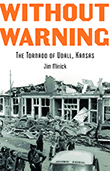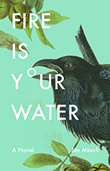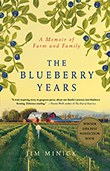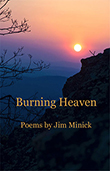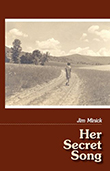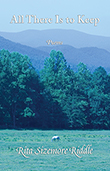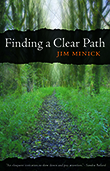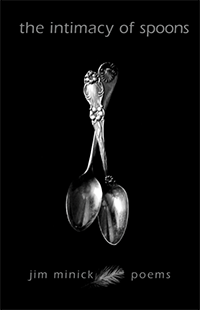
Madville Publishing
ISBN: 978-1-956440-75-1 paperback
ISBN: 978-1-956440-76-8 ebook
The Intimacy of Spoons explores the many metaphors of the spoon: from love and marriage to the spoon of a grave that holds our bodies; from the darkness of loss and night, where “the Big Dipper is nothing but / the oldest spoon pointing us home”; to the darkness of lungs transformed into art. The poems cover a wide variety of topics—cultural, political, familial, and natural—and always, underlying these poems is the song of birds—with broken wings or clear voices, avian muses filling our forests now or long gone. There are nods to Basho and Thoreau, to Eliot and Frost, Dickinson and Milton, this last, a long poem that retells the story of Adam and Eve from the point of view of Mal, the apple. Likewise, The Intimacy of Spoons shares a variety of forms, from sonnet, sestina, and villanelle to syllabics, lyrics, and a ballad. At the center of the book is the long poem, “Elegy for My Body,” which uses wordplay and contrasting voices to explore mortality, because “You can’t really do time; / it simply does us, / or undoes us, / us beings in the time being being beings / on Times Squared / waiting for the big ball to fall.” The poems of The Intimacy of Spoons return us to everyday stories and objects, common yet profound.
What Others Say
If you had to pick just one utensil from the kitchen drawer, just one piece of cutlery as tool and weapon, most of us, no doubt, would reach for the fork or knife. Both are defined by their sharpness, both can tear and cut and stab. But Jim Minick turns away from all that and in his hand wields a spoon . . . Yes, a spoon—lowly and simple and dull—an implement whose usefulness is an act of holding, whose power is steadfast tenderness. And this collection—The Intimacy of Spoons—is a result of making that choice time and again, each poem showing just how the worst of what we face today—be the climate crisis or our aging bodies or our distracted, grief-stricken lives—can be fought with the weapon of empathy and grace. The result then is a book filled with dogs and birds and deep attention, each poem a spoonful of medicine to administer healing to our broken world.”
— Nickole Brown, author of To Those Who Were Our First Gods
Jim Minick declaims, “This is how the Earth sings,” and in his poems he works out a kind of peace, a form of grace, informed by a deep and loving knowledge of place, tended to with compassion and praise and a cleareyed gaze that lets nothing escape. He offers up the sound a coyote makes, explains our kinship with oak and elm, claiming this world is enough, if we’d only care for it.”
— Todd Davis, author of Coffin Honey and Native Species
Throughout this collection, Jim Minick’s own bright song traces the tender fascination he has sustained for various winged creatures over his lifetime—what they have gifted him by association, what he has learned from them, and the pleasure he has taken in rapt observation. Glimpses of mortality, ecological precarity, and Minick’s many encounters with birds, take us deep into a landscape of the heart with a mature poet who grieves extinction, damage, and destruction, as much as he celebrates his love for feathered creatures and their persistent songs.
At the heart of this accessible and skillful collection, readers will appreciate Minick’s love of his wife, earth wisdom, and of course birds, while he grapples with how humankind has emptied the garden not just of themselves, in the myth of Eden, but of many other possibilities through forms of careless self-indulgence that have proven reckless for our entire ecosystem. In the rousing and ironic “Mal and Slick’s Ballad,” Minick drills into the dangerous place of religion in all this damage we’ve wrought on a quest for heaven. Jim Minick is a poet who can range from high to low rhetoric, employing formal grace or friction, always with clarity of purpose and characteristic honesty of expression. The Intimacy of Spoons is a collection to read and reread to unlock its treasures.”— Cathryn Hankla, author of Lost Places: On Losing and Finding Home
With a near-boundless affection for the overlooked and quotidian, The Intimacy of Spoons reminds us that we are surrounded by the miraculous if we but choose to notice it. From the way he recounts the small kindness of rescuing a cardinal to the philosophical depth he finds in considering the common teaspoon, it’s clear Jim Minick is a poet of generosity and kindness. By turns wistful, whimsical, and wise, this is a book I’ll be rereading for a long time to come. It’s a delight.”
— Doug Van Gundy, author of A Charm Against Forgetting
Here is a book that opens the kitchen drawer and finds a “mirror that fogs with breath” among the ladles. The Intimacy of Spoons shines its light into a
world made bright
by a creature who
knows darkIn these poems, Mortality is the name of a dog who will lick your face and the Fix-It Man tells of the double murder of his parents. Looking hard at logged land, Minick speaks tenderly of shade. Listening to the rain “with one ear,” he extends a hand to those who want to find their “way back into the earth.”
— Amy Wright, author of Paper Concert
Excerpts from The Intimacy of Spoons
To Spoon
To spoon is not to fork—
that’s what we do to steaks
and roads and manure.
To fork is to pierce, penetrate, puncture.
To fork is to split and branch,
to pay up and cough out,
but also to tune.
We forklift crates. We pitchfork hay.
The devil never carries a spoon.
Can you bang forks and get a song?
To spoon is not to knife—
that’s what we do too often
to bodies and silence.
To knife is to slice,
to stab and wound,
to skin, filet, and butcher.
To knife is to dam
water that once
spooned the land.
Can you play knives without getting hurt?
Yet the tool is innocent:
a fork feeds or gigs;
a spoon ladles soup or cooks H—
and a knife? To scalp
and to scalpel
both require a sharp blade.
Listen to the drumming of the spoons.
To spoon is to slip into sleep
and the same soft, slow breath,
to listen to the rain
with one ear.
When You Realize the Future
Pollen, like baby’s breath,
clouds the air, a fine dust
of pine, chestnut, and oak.
At dusk, the same air swells
with quiet blinking
as lightning bugs
fire the dark.
Later a whippoorwill—
its beating song
a whisper
of a faraway
heart.
None answer
in reply.
The quiet
of the country woods
suddenly turns
empty and


